Photo: Lina Gaisser
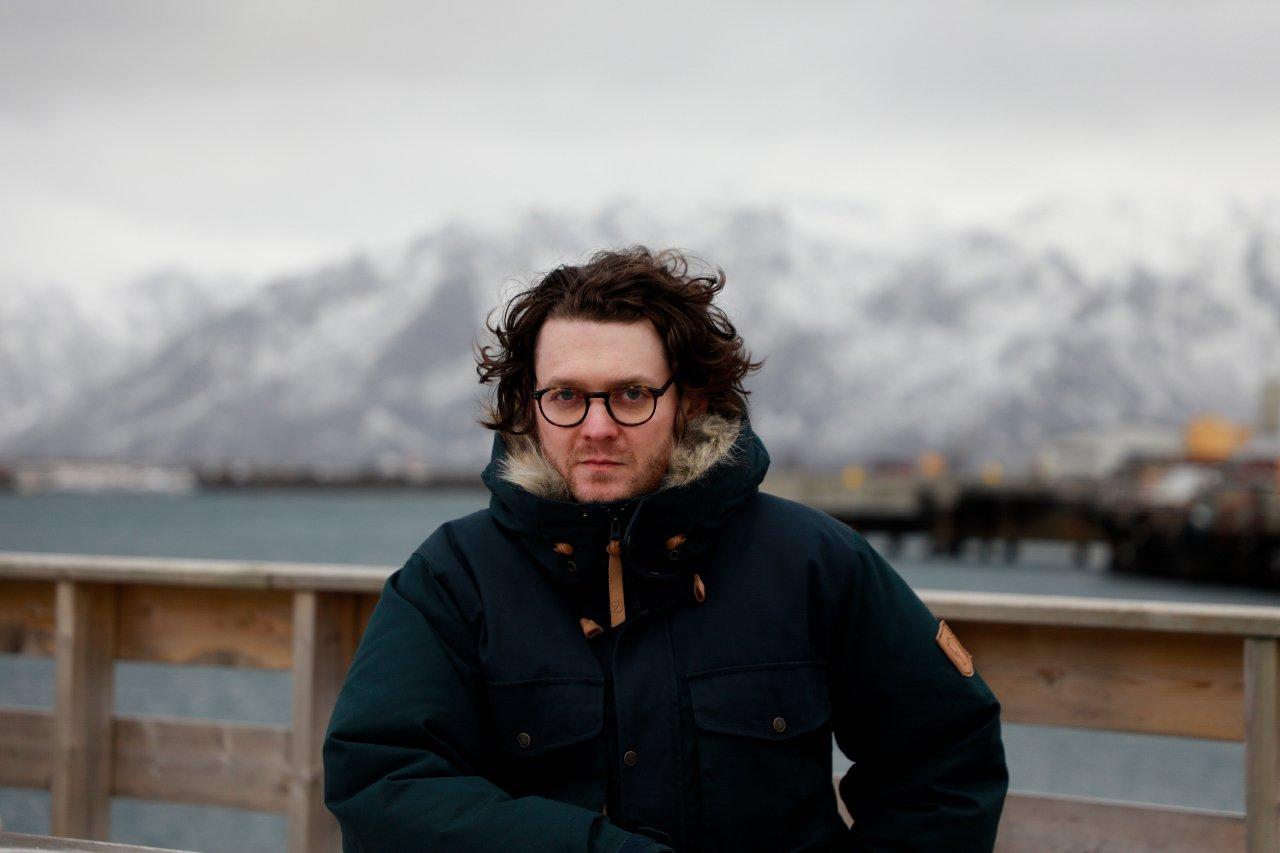
interview
Beirut's Zach Condon Lost His Sense Of Self — Then Found It Within A Church Organ
The Beirut star who captivated the hipster set with tunes like "Postcards from Italy" is a bottomless musical thinker. He explains how he found his way back from the hell of 2019, and crafted an enveloping new album, 'Hadsel.'
Since the release of his first album as Beirut, in 2006, Zach Condon has both enjoyed numberless enviable successes and been through the wringer. Divorce, mental illness — which clobbered his body and grounded him as a touring act — the whole nine yards.
"I canceled everything, and I just told the band, 'Sorry, guys, it's not working,'" Condon tells GRAMMY.com from his home in Berlin, of a third tour that had fallen through due to respiratory maladies. "Clearly, these physical issues were clearly caused by some mental issue.
"I think my body was just like, We've tried everything," elaborates the walking definition of an uneasy tourer. He takes on the voice of his physiology: "Oh, if you take the voice out, he just goes home."
The experience left Condon demoralized and "shattered." But there was a silver lining. In an effort to lick his wounds — and regroup from the mental maladies that had made him turn to substances, and sober up in 2018 — Condon absconded to the arctic Norwegian island of Hadsel. On a colossal organ in a 19th century church, began to throw ideas at the wall.
The result is the magisterial, borderline liturgical Hadsel, which finds the tenacious Pitchfork-era indie darling of yore completing a circle.
"It enabled me to work on my own again; I think I had come more and more to rely on the and and even in the studio," he says. "Doing this one completely alone reminded me of how I started, which was just as a bedroom kind of four track guy.
"It is very liberating to be like, oh, you know what? I'm actually more capable of this than I thought," he continues. "And it's not like I've just creatively worn out and burnt out. It's like there's really a fire burning underneath — if I don't kill myself going on tour."
Read on for an interview with the erudite, incisive Condon, where he elaborates on Hadsel from all directions.
The first thing I thought of while listening to Hadsel was the timbral multitudes of the church organ. The entire record seems to exude from it. What speaks to you about the pure sound of the instrument?
So, there's the pump organ and the church organ. And the pump organ, which is on most of the record, feels like a warm blanket of an embrace, sonically. It's just like the warmest roundest tone and it's just breathing and wheezing in this really nice way and it's kind of droning.
So for me, that was the fireplace at the center of the album — the warmth and the shelter and all that stuff. And then I was getting really into these modular synth things.
[Looks over Zach's shoulder] I noticed.
And when you say timbral, I'm often thinking of that kind of stuff — because there you're teasing out all these frequencies and overtones. And the better you get at it, the more you can get these really interesting tonalities.
But [the organ] is much more chaotic and woozy. And I kind of considered that to be almost like the outside forces, or almost like the weather patterns outside rather than the kind of warm focus in the center.
I liked mixing those too. It wasn't conscious; It's not like I went there and I was like, Oh, you know what's going to be great, is modular synth and pump organ. I just happened to be really interested in both, and that's what happened.
Where do the two connect for you?
What's funny to me is, the church organ feels like the first modular instrument to me. This is all about sound manipulation and tone manipulation. And then the church organ is basically the insane, gothic version of that where it's like, I'm going to make an orchestra of flutes that you can play by hand, but then you can change them into trumpets and mix it with both of them and you can get exactly the sound you're looking for.
So it's that kind of insanity that only humans have. That's one of the reasons I love that instrument so much.
There are so many lineages and pantheons of the organ. Which one are you most interested or steeped in?
I've been learning a lot about the church organs, because it's just so fascinating. But my bread and butter is certainly with the reed organs because they make the most sense to me and they're the most versatile in some ways.
The funniest thing I've stumbled upon is they still have [church] organs in places like Spain and Italy that are so old that they use the system they had before they had electric air pumps. Literally, one monk would just sit there with the giant bellows trying not to push too hard or too slow in order to keep the tone steady, while another monk would sit there and play. Which is quite funny to watch, actually.
That rickety, unwieldy inhalation and exhalation — I'm sure that affected what you were writing, as far as pulse is concerned.
Yeah, it does, too. Usually, they have a kind of bellow — like a reservoir that you fill, and it [emits] one constant amount all the time. It never changes.
But the way I've been using it is not like that. It's like the moment you press down, it'll swell and then go back. And so there really is a kind of expressiveness, even though it drones. And I feel like that's the best way it sounds is when it drones, there is some room for expression.
You lay out the story of Hadsel rather well in the press release. But what place of the heart did the album spring from?
I was quite shattered in 2019. That's a big part of the story. I don't even know if I wrote that down in that part.
But 2018 was the year that I had sobered up, and I was like, 2019, I'm going to take over the world. As in, I'm going to do this world tour, and I'm going to pay my band really well, and it's going to be this triumphant return to form. And the moment I got on the road — I went through three tours. The first one I spent the whole time on steroids and antibiotics because I was sick the entire time.
Jesus.
The second one, I was sick again. Within one week. I got a horrible upper respiratory infection, and I was on antibiotics and steroids, and it got so bad I still had to cancel that tour.
And, then I went on a third tour in Europe. And again, one week into the road, I got terribly sick. And I went to a doctor and was like, "Just give me the drugs." And he was like, "If you keep doing this, you're not going to sing anymore and your body's going to fall apart." It was like, Why would you do this to yourself?
So I canceled everything. I still had all these European dates. I had Brazil, and Mexico, and much more, even. And I canceled everything. And I just told the band, "Sorry, guys, it's not working." Clearly, these physical issues were clearly caused by some mental issue.
And so, when I went up to Hadsel, I was kind of fleeing from all that. I had had these difficult dealings with insurance companies. I had just told the band that we probably wouldn't be touring ever again, which is still true.
I was in a really, really low place. I was fleeing things and all these things that I had pushed aside since I was quite young, 15, 16 years old. Covering everything up with alcohol, and with all sorts of things.
It was all just hitting me at the same time while I was making this record, I didn't think, it's not like I went up there with this perfect plan. I actually was more like, I'm going to go up there and relax.
But then, I saw that they had this organ. So, I brought equipment with me, and I thought it would just kind of be hobby style — just get lost in the music, or whatever. So it wasn't until I came back from Berlin that I actually was like, I can make this mess an album if I try.
To bring it back to the music, how did the other necessary musical ingredients announce themselves — from that warm, foggy, musty bed of the organ?
Well, usually the bed actually started with the frame of the drums. So because I'm not really a percussionist, actually, that's one of the reasons I was bringing this along is I was like, "This will be my drum machine."
I'm super obsessed with old analog drum machines. [Gestures] I have the old Rolands over there, for example. And I would mix the two. And then I started using the modular almost entirely as a drum machine, which originally wasn't why I started using it, but I realized it made these very interesting, bongo-like electroacoustic sounds.
Then, I would just spend hours deep in that sound-making without thinking about melody or harmony or anything at all. That would just get you in this weird, repetitious, kind of train-like state.
Eventually, I would stand back and let the machine just go and go and go, and then I would start playing the organ over it. It just seemed like the natural next step. And then that would lead [elsewhere]; I mean, if you listen, most of the songs are pretty much built around that.
And then, I would throw some melodic elements on and some hand drums, for example. Then, maybe a trumpet line or some French horn. And eventually, I got the baritone ukulele, and I realized that it had the same warmth as the organ somehow.
Overall, what was your approach to harmony on Hadsel?
I was listening to a lot of choir music at the time, but I don't know if I learned anything from it or if I was just impressed by it.
My way of harmony is weird — because when I work with other people, I realize they do it super differently. I have a couple well-schooled brass guys that play live in the band, and they think about it beforehand.
I'll sing one part, and then mute that part, and then I'll sing another part that just sounds nice to me. And then I'll mute that one, and I'll sing a third part that sounds nice to me. And then I'll just unmute and be like, Does that work? Flying blind is kind of the way I go.
I had no idea you were into modular synths, or even theory. Have you always been an under-the-hood kind of guy?
The only instrument I was trained in was trumpet. And then, my teacher spent a whole year [with me] when I was in high school. He sat me down with music theory, and I was so furious with him. In hindsight, I'm like, "That's quite helpful."
I just know the very basics. With this stuff, this is normally not what I'm interested in. I'm normally a crash-and-burn, throw a microphone in the general direction of the instrument. I've never played it before, but this sounds good to me.
And I feel like with production, I got a little more hands-on with this record, obviously. So all of a sudden I was using compressors and all that stuff for the first time in my life.
If it's related to music, I can get into it, basically.
*Zach Condon of Beirut. Photo: Lina Gaißer*
All of this recontextualizes the use of the ukulele, which has been integral to Beirut's music for a long time. Back in 2007, that might have been slotted into the "twee" milieu. But arrangement-wise, it's a counterweight to the gigantism of the organ.
I spend almost all my time on organs and pianos in the same two octaves, which are down towards the bottom. They're under middle C or something like that. I never go above that, because that's the room for those other instruments.
I can get why people would've thought of my music as twee. But for me, that was never what the purpose or intent of it was at all.
In the music industry, I've witnessed firsthand how artist friends of mine have been sloppily tagged and shoved through the system. Was there any resentment, any getting over the indignity of being in the machine?
Oh, absolutely. I would be lying if I was like, "Oh, it never affected me." I hated it. And I spent some years attempting to crawl out of it.
Notably, during [2011's] The Rip Tide and the record after that [2015's No No No], if things were coming to me and I thought they could be misperceived in that way, I would be like, "All right, maybe we skip to a different song," or something like that.
Which is a horrible way to work. I felt very handicapped. I felt like I always had one hand tied behind my back. I felt like I had to prove something to the world, and I was building up this kind of facade. And it's exhausting to do that.
So with the last two records, and definitely with this one, I really just stripped all of that off. I really was like, "I'm old enough now to know I don't come from that generation of cynicism." That's my older brother's voice, practically.
And it's not like he's just this asshole that's always cynical of what I do; he's super supportive. But his friends in those groups — it's like I saw the way that they would chew things up, they'd tear it apart. If it had any vulnerabilities, they would tear it apart.
And with this record, I was like, The vulnerabilities are what made it interesting in the first place. So I'm leaving them. All of it. I don't care anymore.
On New Album Jonny, The Drums' Jonny Pierce Is Finished "Setting Myself Up To Lose"
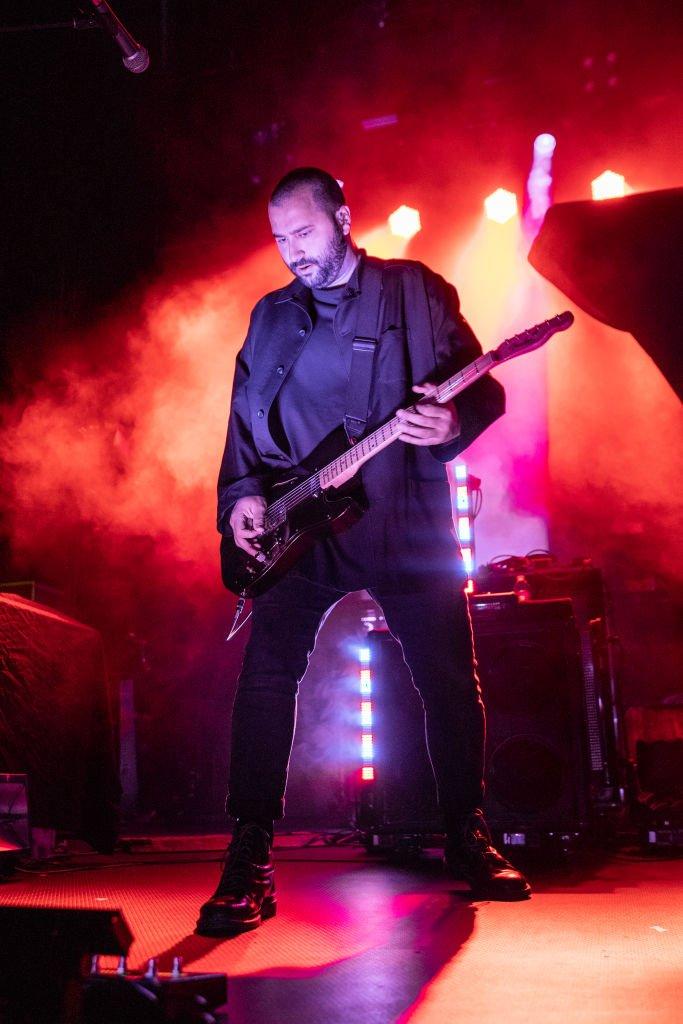
Karnig Manoukian of Charming Liars
Photo: Miikka Skaffari/FilmMagic/Getty Images
news
Charming Liars Drop Must-Hear Cover Of Post Malone's "Circles" To Benefit Disaster Relief In Lebanon
With co-signs from the likes of Elton John and System Of A Down's Serj Tankian, the single is raising money for disaster relief efforts following the Aug. 4 explosion in Beirut
Los Angeles alternative outfit Charming Liars have released a brand new benefit single. The song: a soaring cover of one of their favorite Post Malone songs, "Cirlcles." The cause: to raise funds for disaster relief efforts following the devastating Aug. 4 explosion in Beirut, the capital of Lebanon. Have a listen:
<style>.embed-container { position: relative; padding-bottom: 56.25%; height: 0; overflow: hidden; max-width: 100%; } .embed-container iframe, .embed-container object, .embed-container embed { position: absolute; top: 0; left: 0; width: 100%; height: 100%; }</style><div class='embed-container'><iframe src='https://www.youtube.com/embed//o4tVfKjcW-o' frameborder='0' allowfullscreen></iframe></div>
Charming Liar's version of the Posty hit has received support on social media from the likes of Elton John and Serj Tankian of System Of A Down.
Originally formed in London's West End by guitarist/producer Karnig Manoukian and bassist Mike Kruger, Charming Liars relocated to Los Angeles in 2013 where they linked up with vocalist Kiliyan Maguire. The band explained the affect of the disaster in a heartfelt post accompanying the new single:
“On August 4th, the third-largest explosion in our world history occurred in Beirut, Lebanon resulting in a devastating amount of destruction, damage, and death to the country and people of Lebanon. Karnig, who is Lebanese Armenian, and all of us Charming Liars, want to do our part to help rebuild and restore the beautiful city of Beirut as well as provide aid to the estimated 300,000 Lebanese who have been left homeless as a result of this tragic event.”
Proceeds from the single will go several organizatons to aid their disaster relief efforts, including the Lebanese Red Cross, Impact Lebanon, Saint George Hospital Beirut, and others.
"Please download, stream, and share it on all music platforms to help us raise funds for an incredible cause," the band added. "Thank you for your continuous support and see you soon!”
Beatport Announces 'Together For Beirut' Reconnect Livestream
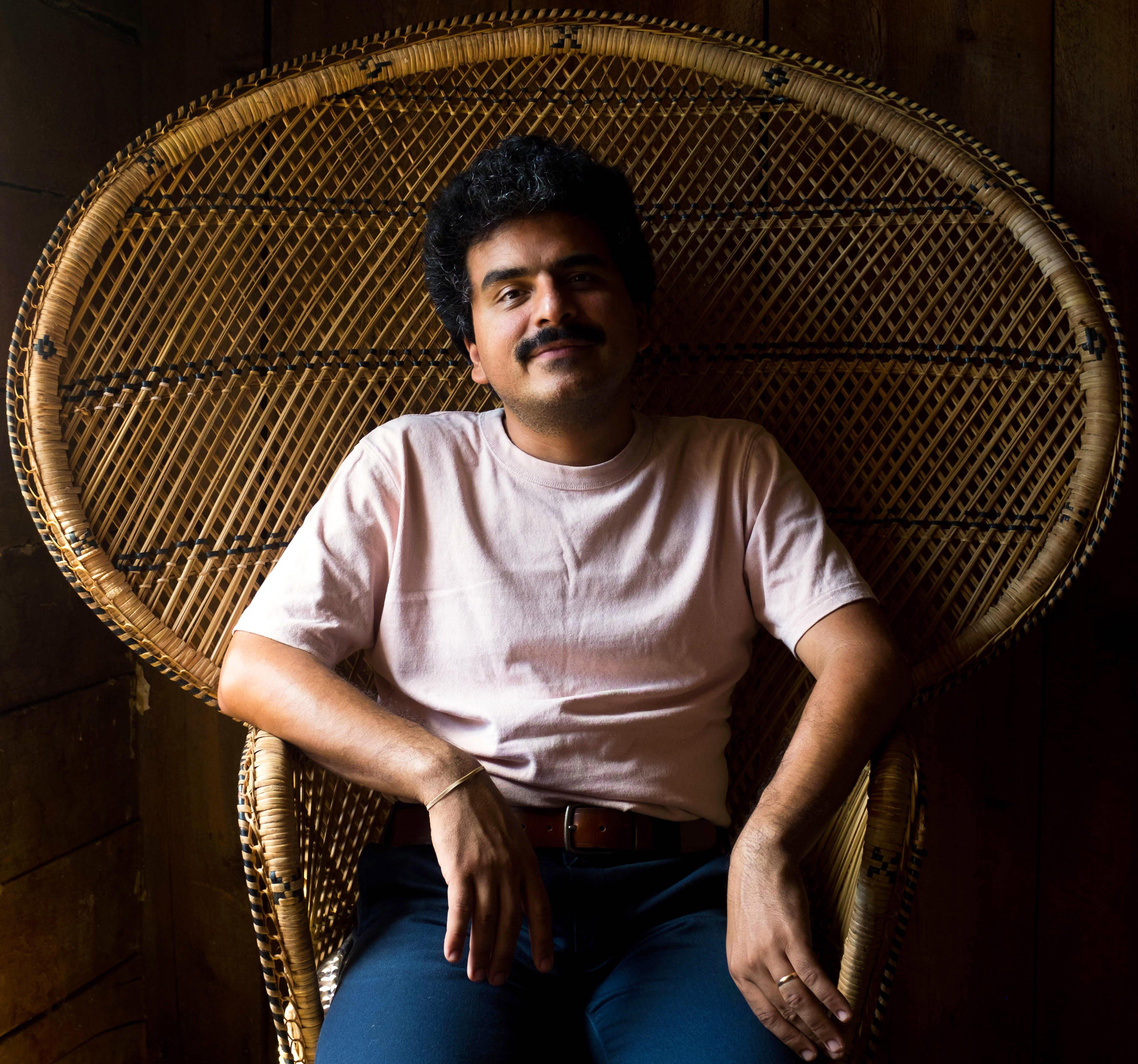
Helado Negro
Photo: Anna Groth-Shive
news
Helado Negro Announces New Album, Tour With Beirut
The musician and producer will bring his Latin-inspired electro/experimental music on a world tour with indie group Beirut, in support of his upcoming sixth studio album, 'This Is How You Smile'
"Young, Latin And Proud" producer and singer, Helado Negro will soon be bringing his dose of electro-infused, Latin-inspired music to a city near you. He recently dropped a lead single, "Please Won't Please," shared a release date for his upcoming album and announced a 2019 tour with Beirut.
<iframe width="620" height="349" src="https://www.youtube.com/embed/HaOfenje23Y" frameborder="0" allow="accelerometer; autoplay; encrypted-media; gyroscope; picture-in-picture" allowfullscreen></iframe>
The Miami-born, New York-based musician, born Roberto Carlos Lange, will tour as direct support of indie rock/folk group Beirut in North America and Europe in the winter and spring as well as play additional select headline shows. The tour will bring music from his sixth studio album This Is How You Smile, out on March 8, to fans all over the world.
Known as the creator of Latin pride anthems like "It's My Brown Skin," his latest album continues to explore his identity more introspectively, looking at both the past and the present. While his last album, 2016's Private Energy, was Lange's self-love response to the social and political experiences faced by people of color in the last years, his forthcoming album This Is How You Smile gets more personal with music inspired by his upbringing. One song, "Seen My Aura," tells the story of his hot pavement walk alongside his brother to the community pool. Other subjects he explores include his relationship with his father, childhood relationships and love. In his words, the album is "a person approaching you, slowly, for 40 minutes."
<blockquote class="twitter-tweet" data-lang="en"><p lang="en" dir="ltr">lyrics:<br>left out<br>an ocean on top<br>blue tie<br>and orange won’t let go<br><br>let me be<br>please won’t please<br><br>blush now<br>they can’t know<br>lifelong<br>history shows<br><br>that <br>brown won’t go<br>brown just glows<br><br>and we’ll light<br>ourselves on fire<br>just to see<br><br>who really<br>wants to believe<br>that it’s just me</p>— Helado Negro (@HeladoNegro) <a href="https://twitter.com/HeladoNegro/status/1062560759232765952?ref_src=twsrc%5Etfw">November 14, 2018</a></blockquote>
<script async src="https://platform.twitter.com/widgets.js" charset="utf-8"></script>
"Please Won't Please" is the world's first taste of Lange's newest material and the album's opening song; the only one on the album that tackles a collective experience. Like many of his songs, "Please Won't Please" poetically tackles heavy, socio-political realities faced by immigrants and people of color. The song is reminiscent of Private Energy and highlights the sacrifices people of color make just to exist in a world that oppresses them, but also their unwavering ability to keep going. "History shows that brown won't go, brown just glows/And we'll light ourselves on fire, just to see if anyone believes," he sings.
A portion of the proceeds of his album will go to United We Dream, an immigrant rights organization. More info on his tour dates here.
Beirut Share Story Behind "Gallipoli" From Upcoming Album, Announce Tour
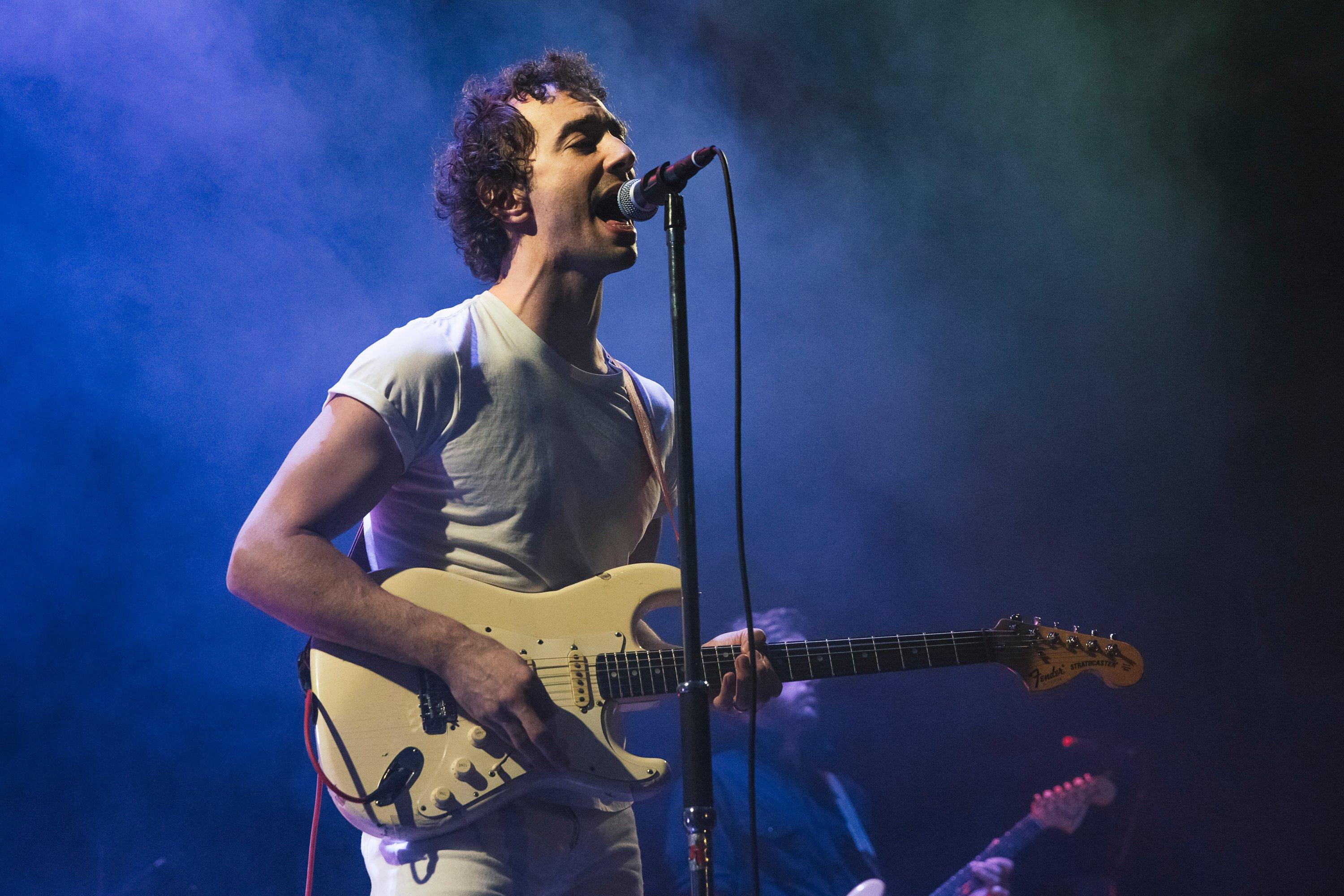
Albert Hammond Jr.
Photo: Andrew Benge
news
Albert Hammond Jr., Beirut & Bob Mould Among First To Join Noise Pop 2019 Lineup
San Francisco's annual indie music and arts festival returns for its 26th year in February with another exciting lineup of established greats and up-and-comers
The Noise Pop Festival has kept the spirit of indie music and arts alive in the San Francisco Bay Area for 25 years, and as its 26th year approaches, has announced the initial lineup of the weeklong festivities that will continue to feature a mix of up-and-coming indie artists as well as established ones on Feb. 25.
Noise Pop is at its heart an indie festival, celebrating indie musicians and artists of all varieties. The Noise Pop 2019 Phase One lineup already boasts several established, fan-favorite artists including indie rock/folk darlings Beirut, The Stroke's guitarist Albert Hammond Jr., Bob Mould of '80s alt-rock group Hüsker Dü and Scottish alt-rock group Teenage Fanclub, who've been making music since 1990.
The festival also prides itself on bringing "early exposure to many emerging artists," plenty of which have gone on to become big names. The list includes GRAMMY-winners White Stripes and The Flaming Lips, GRAMMY-nominees Death Cab for Cutie and Modest Mouse and indie-rock classics The Shins and Bright Eyes.
This year, the initial lineup has already plenty of artists to watch out for, including L.A-based electro/dream-pop artist Baths, NYC-based indie-pop singer/songwriter Caroline Rose, Aussie electro-R&B duo Kllo, L.A.-based singer/songwriter Current Joys and more.
The festival will come to life through a variety of venues across San Francisco and Oakland, along with art shows, film screenings and happy hours to keep music lovers busy all week. Passes are available for access to all of the events, as well as individual tickets for shows. More information is available on Noise Pop's website.
Beirut Share Story Behind "Gallipoli" From Upcoming Album, Announce Tour
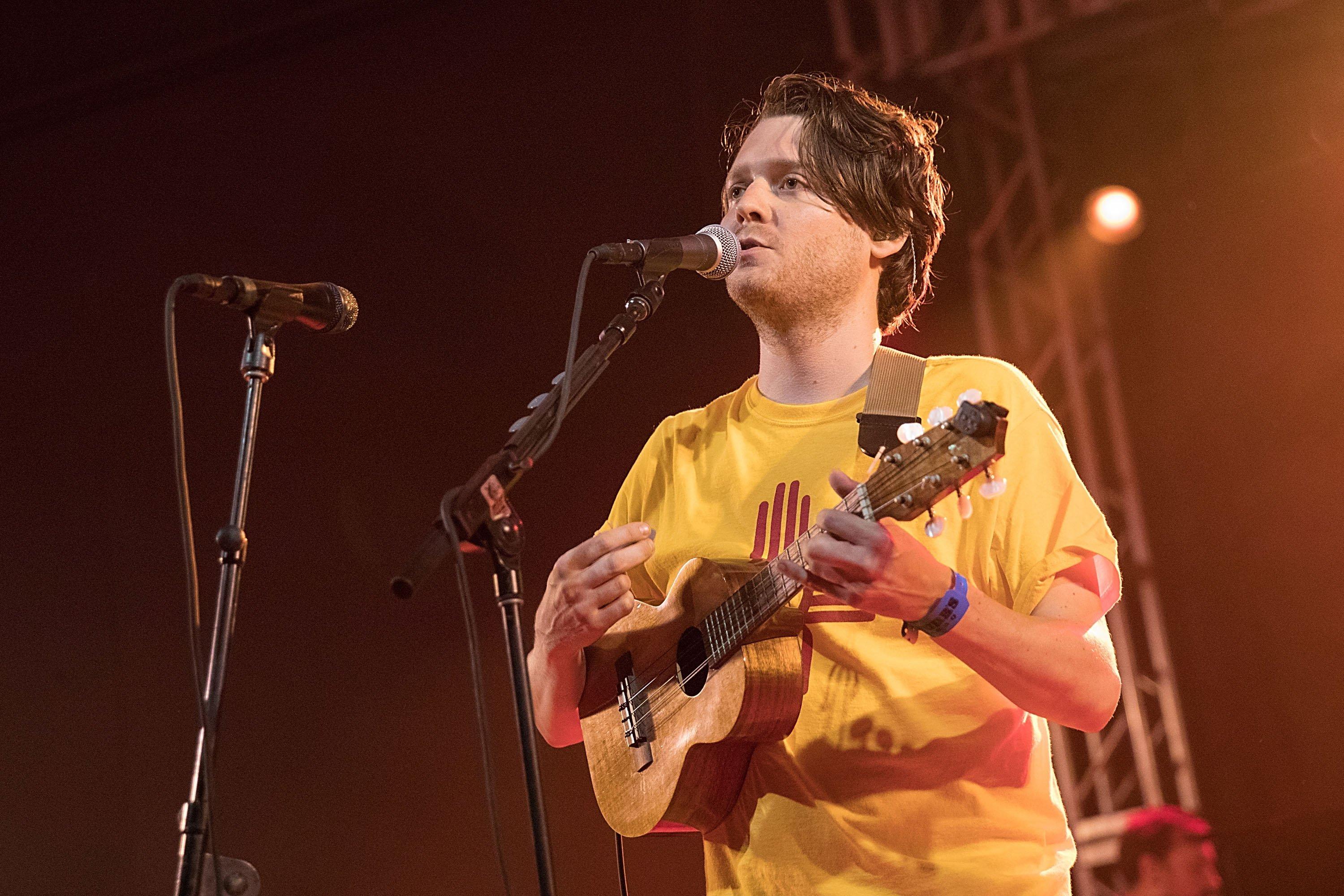
Zach Condon of Beirut
Photo: Rick Kern/WireImage/Getty Images
news
Beirut Share Story Behind "Gallipoli" From Upcoming Album, Announce Tour
Writing and recording "Gallipoli" in Italy "seemed to return me to the old joys of music as a visceral experience," Beirut's Zach Condon shares
Indie group Beirut, led by Zach Condon, have released the lead single and title track for their upcoming album set to be released on Feb. 1, 2019. The band will also launch a tour in support of the album that month.
"Gallipoli" is a joyful, bright track led by celebratory-sounding horns and organ notes, with Condon's vocals floating amongst them as he sings, "We tell tales to be known/or be spared the sorrow." The song was written by Condon after the group visited the small island town of the same name in Southern Italy while working on the then-unnamed album at a studio in a nearby town.
In a long note from Condon on the band's website, he shares that "Gallipoli started, in my mind, when I finally had my old Farfisa organ shipped to New York from my parent’s home in Santa Fe, NM." It was with this old, previously-abandoned organ that he used almost exclusively to write the majority of Beirut's first two albums, while still living in Santa Fe. After the organ arrived in Brooklyn at his home at the time in 2016, he began writing the first songs for Galliopoli, also using it for the first time in the studio.
After Condon moved from Brooklyn to Berlin in 2017, the group resumed working on the album, this time in a rural part of Southern Italy. It was there that Condon, along with two of his bandmates, Nick Petree and Paul Collins, and producer Gabe Wax had a strange and inspiring encounter.
"We stumbled into a medieval-fortressed island town of Gallipoli one night and followed a brass band procession fronted by priests carrying a statue of the town’s saint through the winding narrow streets behind what seemed like the entire town, before returning late to Sudestudio. The next day I wrote the song I ended up calling ‘Gallipoli’ entirely in one sitting, pausing only to eat. I eventually dragged Nick and Paul in to add some percussion and bass," he shares.
The creativity and inspiration he felt that night and the following day gave him the beautiful title track, and soon enough the rest of the album.
"I was quite pleased with the result. It felt to me like a cathartic mix of all the old and new records and seemed to return me to the old joys of music as a visceral experience," Condon said. "This seemed to be the guiding logic behind much of the album, of which I only realized fully at that point."
<iframe width="620" height="349" src="https://www.youtube.com/embed/knHvi4A8v9Q" frameborder="0" allow="autoplay; encrypted-media" allowfullscreen></iframe>
On NPR's All Songs Considered, Condon furthers the story of the night in Gallipoli:
"[Sound] was bouncing off the walls, and simultaneously every church bell in town was ringing, which just made for utter chaos. And the city is just claustrophobic, streets winding—you would have to live there your whole life to know where you're going."
Shortly after the album is released on Feb 1, Beirut will embark on a U.S. tour beginning Feb. 10 in Brooklyn and ending March 5 in Los Angeles. The European leg will follow, beginning in Berlin on March 30. More information on the tour can be found on the band's website.
SXSW Announces First Wave Of Artists For Music Festival In Spring 2019
